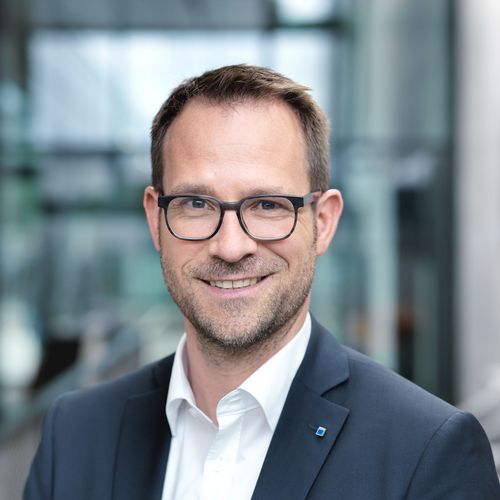Project partners plan to launch first satellite with quantum technology attitude control in 2027 // Quantum sensors are a key technology for accurately controlling the orientation of communication satellites // Scientific expertise to be provided by the Ferdinand-Braun-Institut, Leibniz-Institut für Höchstfrequenztechnik // German government allocates eight-figure sum to support QYRO project
Q.ANT, Bosch, TRUMPF and German Aerospace Center aim to use quantum sensors to control satellites
Stuttgart/Cologne/Berlin, August 26, 2022 – Quantum technology start-up Q.ANT, Bosch, TRUMPF and the German Aerospace Center (DLR) have formed a partnership to develop space-qualified attitude sensors. The aim is to use these quantum technology-based sensors to achieve high-precision attitude control of miniaturized satellites and improve worldwide data communications. The sensors’ ability to maintain precise orientation of the satellites in relation to each other will enable high-speed data connectivity – and that makes them a key part of the technology puzzle. “This strategic partnership shows the tremendous potential that lies in the collaborative development of pioneering technologies. The deployment of quantum technology in the aerospace industry is a huge opportunity for Germany as a major industrial hub,” says Michael Förtsch, CEO of Q.ANT. By supporting a global network of satellites in low Earth orbit, this new collaborative venture will improve Internet connectivity, particularly in more remote regions. The German Aerospace Center (DLR) hopes to launch its first miniaturized satellites equipped with quantum technology in five years’ time. Attitude and position sensors that harness quantum effects can be used not only for satellites, but also for autonomous driving systems and indoor navigation technologies in factories, logistics warehouses and other facilities. The project has a research budget of some 28 million euros, much of which has been provided by the German Federal Ministry of Education and Research (BMBF). The partnership also includes the Ferdinand-Braun-Institut, Leibniz-Institut für Höchstfrequenztechnik (FBH), a research Institute that specializes in developing laser diodes, particularly for applications in space.
Quantum sensors guarantee extremely high precision
Reliable transmission of satellite communication signals can only be achieved by constantly maintaining high-precision attitude control of satellites in their orbit. If a satellite moves out of position, the signals get weaker. The consortium plans to use quantum technology to permanently enhance measurement stability. Quantum sensors are particularly suitable for deployment in satellites thanks to their ability to provide reliably accurate measurement results and excellent performance in a compact, low-weight package. This solution can keep satellites correctly oriented in space over a period of years.
Solid partnership between research and industry
The goal of developing European quantum sensors is to achieve greater independence from the global market. Q.ANT will lead the collaborative development project and develop the overall sensor concept. It is also responsible for integrating the various sensor components and keeping them in precise and stable alignment with each other to ensure they function smoothly and reliably in the satellite. “The job of our sensor is essentially to improve the satellite’s equilibrium," says Michael Förtsch, CEO of Q.ANT. The Stuttgart, Germany-based quantum technology start-up will also be supplying key electronic components such as a very low-noise detection system. Bosch researchers are working on the development of a miniaturized, space-qualified sensor cell. “The measuring cell is the core component of the quantum sensor,” says Thomas Kropf, who heads up research at Bosch. It is filled with an atomic gas that is excited by laser beams and magnetic fields, which cause the atoms to spin. The rotation of the sensor causes changes in the rotational speed of this spin. This provides high-precision feedback on changes in the satellite’s attitude, thereby enabling more accurate attitude control. “We’re delighted to be part of the project and to be able to contribute our expertise in quantum sensors. It’s another chapter in the success story of MEMS (micro-electro-mechanical systems) sensor technology at Bosch.”
TRUMPF will contribute laser expertise from two of its German locations. TRUMPF Photonic Components in Ulm will supply the miniature laser diodes. These are currently used in smartphones, industrial optical sensors and similar applications, but TRUMPF will now be teaming up with the Ferdinand-Braun Institut to prepare these robust beam sources for use in quantum technology and in space. “I can see a tremendously bright future for our miniature lasers in a whole variety of new applications. This is the kind of government-funded project that gives Germany a real boost as a major hub of photonics expertise. There are so many innovative technologies that can benefit from the know-how and state-of-the-art production facilities that we have built up over the years,” says Berthold Schmidt, CEO of TRUMPF Photonic Components. TRUMPF’s Berlin location specializes in providing solutions in the fields of sensor, laser and quantum technology. It combines the light sources from Ulm with additional measurement technology and then integrates the resulting system into robust, miniaturized housings using innovative assembly and automation techniques. The final product is temperature-stabilized to ensure it can withstand the extreme conditions in space. The Galileo Competence Center at DLR is responsible for all space-related aspects. As well as ensuring the system is space-qualified, it will also be in charge of the implementation, transportation and operation of the satellite. The German Federal Ministry of Education and Research (BMBF) is funding the joint project QYRO as part of an initiative designed to support flagship projects in quantum-based measuring technology that aim to address societal challenges.
Contact person




